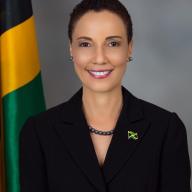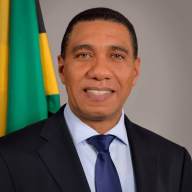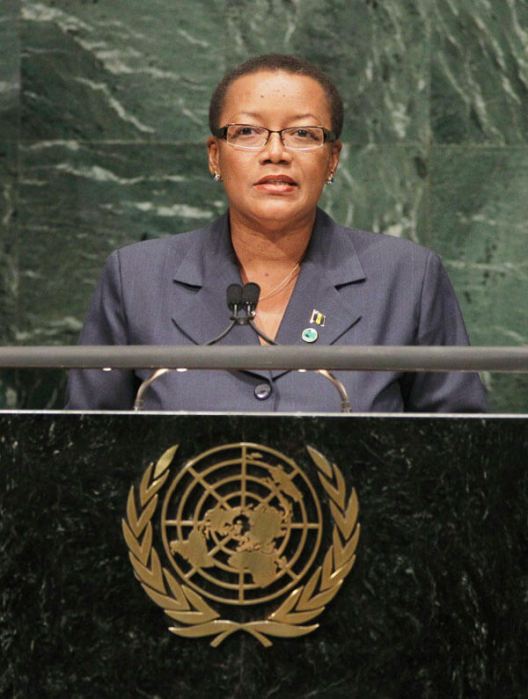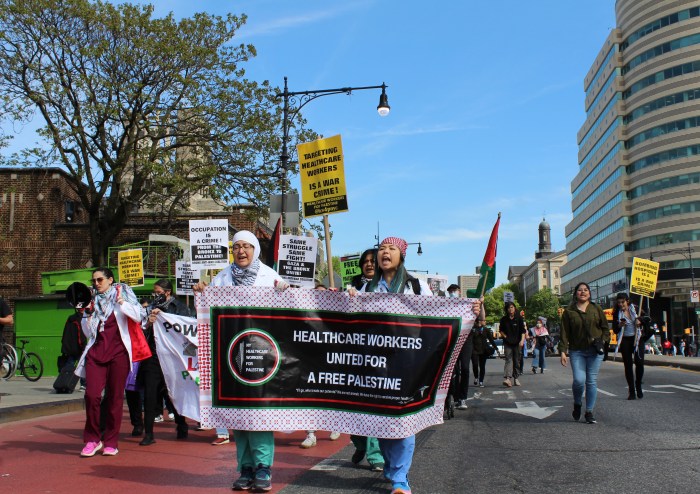Bahamas
The Ministry of Tourism said that several government websites, including its own, were hacked recently by members of a Tunisian Islamist activist group called the Fallaga Team.
In a statement, the ministry said all defaced sections of the hacked websites were quickly removed and “a corrected version redeployed and all affected websites are now back to normal modes of operation.”
“As a short term strategy and in an abundance of caution, all government websites have been checked for possible breaches, safeguarded and reinforced against potential vulnerabilities by the implementation of software patching,” the statement said.
The statement said Baham
According to its Twitter page, Fallaga Team has hacked Tunisia, Israeli and French websites and has 60 members.
Tourism Minister Obie Wilchcombe said that such hacks can “cause serious disruptions to government’s operations, to national trade and commerce and can sometimes cause serious harm to the country’s international reputation.”
Prime Minister Perry Christie made the revelation recently. He said the incident has “enormous national security implications.”
Barbados
The Caribbean Development Bank (CDB) has pumped an additional US$469,000 into the region’s specialty food sector via a supplemental grant to the Caribbean Export Development Agency (Caribbean Export) under the Caribbean Aid for Trade and Regional Integration (CARTFund) Program, which is funded by Britain’s Department for International Development.
The region’s specialty foods include a range of processed foods and beverages that typically can command a premium price due to characteristics such as their high quality ingredients, sensory appeal, branding, packaging, and origin, among others. Despite the global economic downturn, consumers continue to purchase premium products. In fact, there has been an increase in demand for sophisticated food products as consumers become more knowledgeable about food preparation and seek new culinary experiences.
There are some 300 agro-processors in CARIFORUM who face several constraints that hinder their expansion and competitiveness and following the development of the regional specialty foods sector strategy and action plan in 2012, several recommendations were made to strengthen and expand this important sector.
Cayman Islands
Seven years after his former government was blamed for running up an $81 million operating deficit, ultimately placing the Cayman Island’s budget process under the United Kingdom control, Premier Alden Mc Laughlin said that the island’s government will soon be back in charge of its own fiscal destiny. McLaughlin said the government 2015 / 2016 spending plan meets the U.K. Foreign and Commonwealth Office’s approval prior to presenting the 2016 / 2017 spending plan set out in the Public Management and Finance Law and by the U.K., agreed Framework for Fiscal Responsibility, which was added in regulations to the law in November 2012.
The premier said that means government financial planners will not have to seek the U.K. Foreign and Commonwealth Office’s approval prior to presenting the 2016 / 2017 spending plan to the Legislative Assembly, a process that in past years resulted in significant delays in approving the budget.
Approval for the 2015 / 2016 budget, which was made public recently, was granted by the U.K in March on the first presentation, government officials said.
Grenada
JetBlue Airbus 320 touched down in Grenada recently, successfully completing its test fight to the newest Caribbean destination on its itinerary.
The flight, carrying several airline officials, was a forerunner to its inaugural trip on June 11.
General Manager of the Maurice Bishop International Airport Wendy Williams said she expects the airline to bring to Grenada not only high-end New York clients, but also a large number of persons from the Diaspora.
“It will bring our own people out there in the U.S. to this market and at a fair price,” she said.
JetBlue will service Grenada twice weekly, on Thursdays and Sundays, with its spacious 150-seat Airbus A320 aircraft.
Haiti
Pop Queen Beyonce has paid a visit to Haiti to look at the progress made since an earthquake devastated the country five years ago.
Haiti UN Mission spokeswoman Sophie Boutaud de la Combe said recently that Beyonce also was able to “meet some of the people who were affected” by the 2010 disaster in the impoverished Caribbean country.
De la Combe said the American singer, a two-time Grammy winner, visited Haiti with Valerie Amos, the United Nations’ humanitarian affairs chief and emergency relief coordinator.
Photos taken during her Haiti visit show Beyonce wearing a T-shirt emblazoned with the name of her charitable organization.
Jamaica
The International Monetary Fund (IMF) has appointed one of its top advisors, Dr. Uma Ramakrishan, as its new mission chief for Jamaica.
Ramakrishan, who served in a similar capacity in El Salvador, prior to her assignment to Jamaica, takes over from Dr. Jan Kees Martin, who was the first mission chief under the country’s current four-year US$932 million IMF External Fund Facility (EFF), which commenced in May 2013.
In welcoming Ramakrishan, Finance and Planning Minister, Dr. Peter Phillips, reaffirmed the government’s commitment to maintaining a high primary surplus target, noting that “Jamaica has achieved the 7.5 percent of GDP out-term… since the inception of the program.”
St. Lucia
St. Lucia Prime Minister Dr. Kenny Anthony recently met with France’s President Francois Hollande, ahead of a climate change summit in Martinique, to discuss issues of mutual interest.
The discussion focused on climate change mitigation, and cooperation efforts in combating crime.
Hollande expressed interest in deepening cooperation between Caribbean nations and French Caribbean territories. He also relayed France’s concerns about the vulnerability of the Caribbean sea level rise and other negative climate change effects that place the region at risk.
Anthony articulated his desire for cooperation in fighting crime cross-border between St. Lucia and Martinique.
He said that Martinique’s membership of the Organization of Eastern Caribbean States (OECS) and France’s increased interest in the region has opened the way for greater levels of cooperation between France’s Caribbean territories and their Caribbean neighbors.
The prime minister was in Martinique along with other OECS heads of government to discuss and prepare for the 21st Conference of Parties (COP21) of the United Nations framework Convention on Climate Change (UNFCCC) to take place in December.
Anthony has lead responsibility for climate change and sustainable development in the Caribbean Community (CARICOM).
Turks and Caicos
The Turks and Caicos Islands (TCI) government generated a US$77.3 million operating surplus for the financial year ending March 31, 2015.
The government said the surplus further consolidates the island’s position as one of the strongest economies in the Caribbean region, with a 16 percent increase in recurrent revenue for the year to $246.5 million.
The performance was built on record breaking visitor numbers to the TCI, and improved tax collection by both the Customs and the Revenue Control Unit.
Import duty was the single largest source of government income accounting for $61.6 million of its revenue. Hotel and tourism tax contributed $51.8 million; customs processing fees $28.6 million: stamp duty $25.8 million; work permits and residency fees $17.6 million; fuel tax$8.6 million.
Government’s recurrent expenditure was also controlled at $161.9 million, seven per cent below the projected spend for the period. In recognition of the 2014-2015 underspend $6 million has been carried over to the new financial year to be spent mainly on infrastructure projects, including social development, housing and planning, education, youth and library services.
“We will continue to work hard to build sustainable sources of revenue, generate surpluses, maintain public spending and reduce debts,” said Minister of Finance Washington Mark.
Trinidad
The Trinidad and Tobago government has put on hold the controversial Cybercrime Bill in the wake of objections from the media that certain provisions threaten freedom of speech and freedom of the press.
The decision was taken after members of the government met with representatives of the various media organizations to discuss the issue.
Communications Minister Vasant Bharath said, “Government’s decision is to not continue to a conclusion of the debate that is currently before the House and these suggestions will be further discussed between the Ministry of National Security and the attorney general with the views coming out that we hope will be consensual and acceptable.”
Last year when the bill was presented in Parliament, the media raised objections to the bill.
However, when the bills were brought again this year, the problematic sections nine and 13 that were objected to were retained in the document.
Bharath said it was never the intention of the government to introduce legislation that would threaten the freedom of speech of any citizen, including members of the media.
— compiled by Azad Ali
























